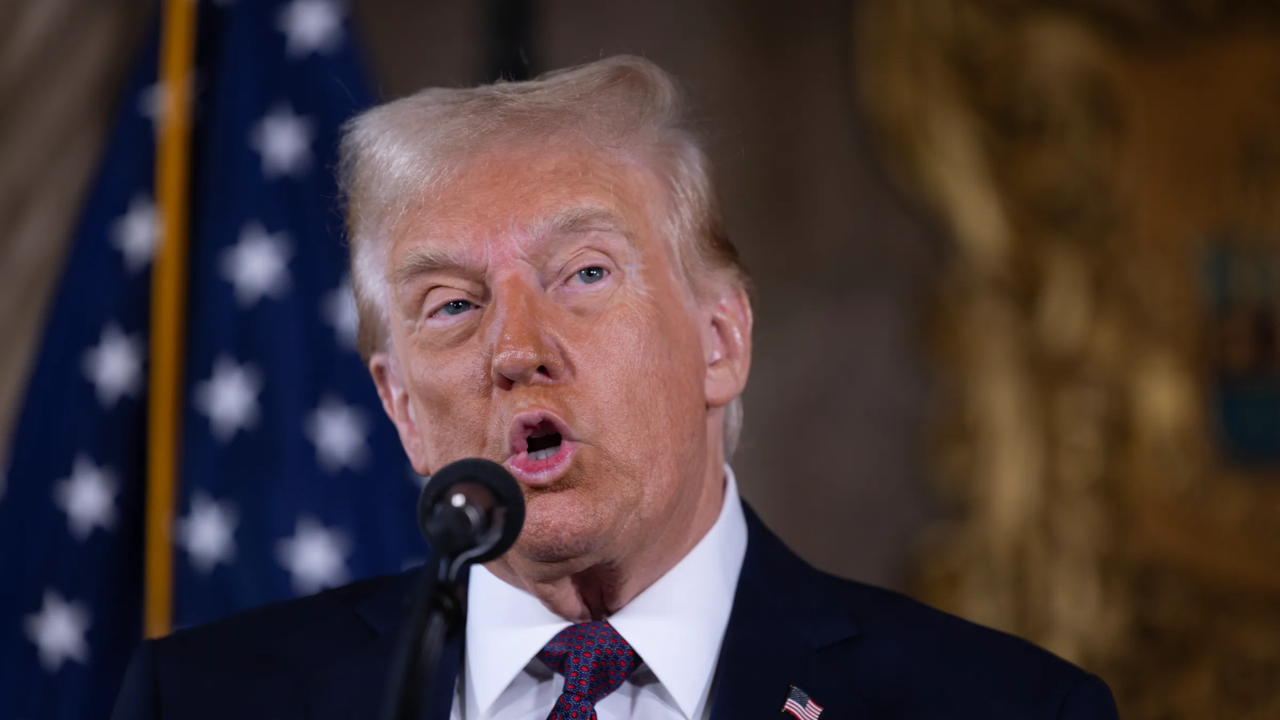On Thursday, just a day after former President Donald Trump announced sweeping new tariffs, a federal court in Florida saw the first lawsuit challenging them.
That in itself isn’t shocking — the tariffs are expected to raise consumer prices in the U.S. and have already caused turbulence in the stock market.
So, it’s no surprise that businesses and individuals who stand to lose money are beginning to push back through the courts.
What is unexpected, however, is who filed this particular case — Emily Ley Paper v. Trump. The plaintiff is represented by the New Civil Liberties Alliance (NCLA), a conservative legal group that had previously supported Trump’s efforts to expand presidential power.
The fact that such a group is now taking legal action against Trump signals a growing trend of prominent right-wing voices challenging his tariff policies.
This includes figures like Ilya Somin, a George Mason law professor and contributor to the influential right-libertarian legal blog The Volokh Conspiracy, who is actively recruiting plaintiffs for a similar lawsuit.
Conservative commentator Ben Shapiro has criticized the tariffs as a “massive tax increase on American consumers” and has suggested Trump rethink his position.
Even Richard Hanania, known for his outspoken criticisms of progressive culture, dismissed a pro-tariff Republican congressman by saying, “we’re ruled by morons.”
These developments matter because many conservative judges, including the six Republican-appointed justices who dominate the Supreme Court, often take cues from conservative legal minds and media figures.
During Barack Obama’s presidency, for example, many conservative judges quickly rallied around a shaky legal challenge to the Affordable Care Act.
Liberal scholars were shocked at how easily a fringe legal argument gained traction. As Yale law professor Jack Balkin explained, an argument once considered “off the wall” can quickly move “on the wall” when respected figures publicly endorse it.
In this case, Trump’s tariffs may face a stronger legal threat than Obamacare ever did. During both the Obama and Biden administrations, conservative justices developed new doctrines — like the “major questions doctrine” and the revived “nondelegation doctrine” — to block Democratic executive actions.
These doctrines give courts the power to strike down major executive policies even when they’re supported by congressional authority.
The irony now is that these same doctrines could be used to challenge Trump’s tariffs. For instance, under the major questions doctrine, courts are expected to be skeptical of executive actions with wide-reaching economic and political impacts.
According to Yale’s Budget Lab, Trump’s tariffs could reduce the average American household’s annual income by nearly $3,800 — a matter of major economic significance.
But there’s a catch. So far, this doctrine has only been actively applied to policies enacted by Democratic administrations.
When Trump was president, the same courts showed little interest in using it to limit his actions. That inconsistency raises serious questions about whether the doctrine is truly rooted in legal principle or just a partisan weapon.
We’ve already seen this pattern. The same six justices who struck down President Biden’s student loan forgiveness program, despite its statutory backing, have simultaneously defended Trump’s broad use of executive power, even in the face of serious legal and ethical concerns.
The major question doctrine itself has a shaky foundation. It first appeared in a 2014 case criticizing a hypothetical EPA rule that never existed and would never have been enforced.
Then it was used again in 2015 to knock down an imaginary health regulation. The doctrine went quiet during Trump’s first term and only re-emerged during the Biden administration — a timeline that has led many legal scholars to view it as politically motivated rather than legally sound.
Now, as Trump seeks a return to office, the big question is whether the conservative-dominated Supreme Court will apply its doctrines to his policies.
Will the same standards they used to block Democratic programs now be used against a Republican president?
The answer may depend not just on legal reasoning, but on political pressure from conservative elites.
As Balkin notes, constitutional arguments gain legitimacy not only when pushed by intellectuals but when supported by elected officials.
Republican politicians — especially those in Congress and state governments — could play a decisive role. If they start criticizing the tariffs once voters feel the sting of rising prices, that could speed up legal efforts to strike them down.
For now, it’s unclear whether elected Republicans will follow groups like NCLA or commentators like Shapiro in turning against the tariffs.
But the fact that the first legal challenge came from a conservative legal group that once backed Trump? That’s a clear sign that the fight over these tariffs is just beginning — and it may not go in Trump’s favor.
Disclaimer- Our team has thoroughly fact-checked this article to ensure its accuracy and maintain its credibility. We are committed to providing honest and reliable content for our readers.

